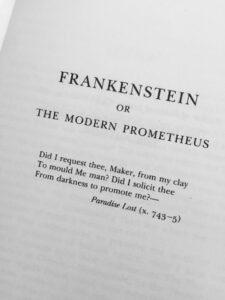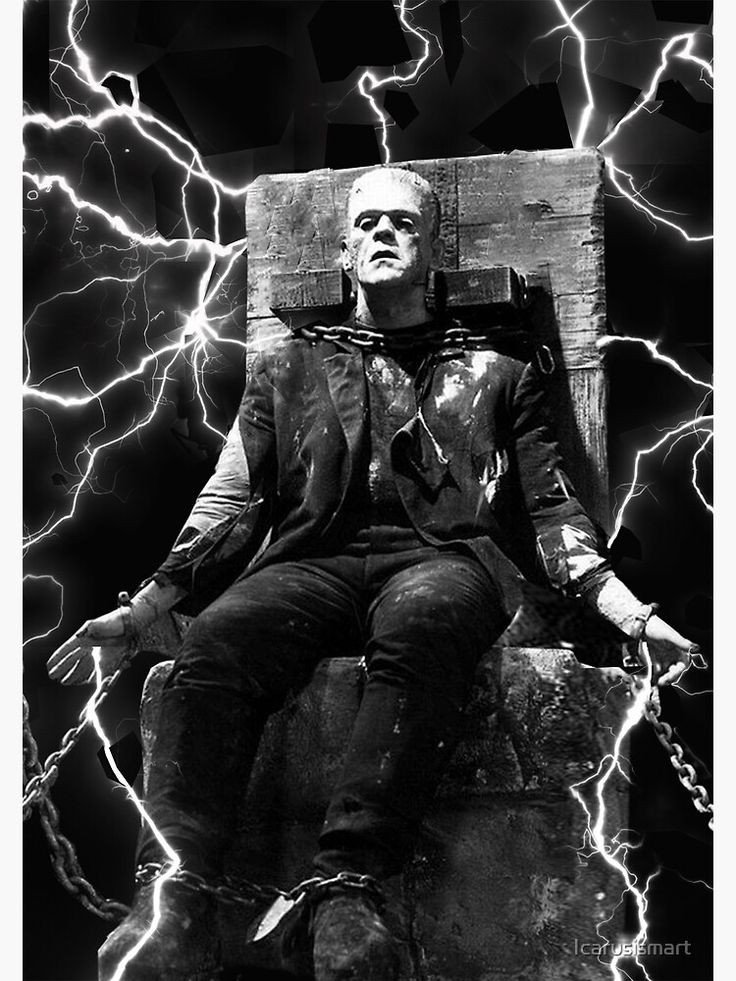
Victor Frankenstein’s mother’s non-existence and ambition in the novel makes him obsessed with his creation of the creature.
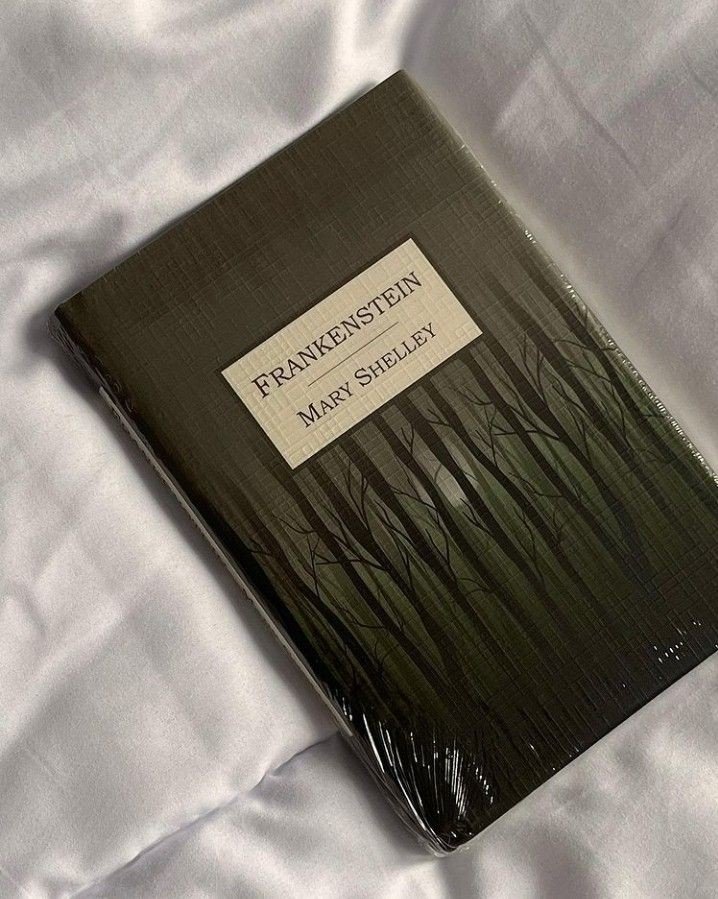
Victor Frankenstein’s mother’s non-existence
“I pursued nature to her hiding places.” By creating the beast-like creature, Frankenstein tried to change the rule of nature, that is, the power of reproduction of women. The consequences of this construction are evident throughout the novel. As we all know, mothers play a significant role in children’s upbringing, but Mrs. Frankenstein’s physical absence and enduring memory make Victor the sensitive person he is.
Patriarchy in Mary Shelley’s Era
The creation of Victor Frankenstein, Mary Shelley portrays another example of the exploitation of women by the Patriarchal Society. The line “a shroud enveloped her form, and I saw the grave-worms crawling in the folds of the flannel” represents the destruction of the female resulting from Frankenstein’s usurpation of the natural mode of human reproduction. One of the horrific facts of the book is his desire to establish a civilization for males only and remove the need for females’ existence. He downplayed the importance of women and the customs and traditions that govern society.
Mary Shelley
Mary Shelley was the daughter of the revolutionary feminist and writer of A Vindication of the Rights of Woman, Marry Wollstonecraft. Therefore, she aspired to become a feminist author too. In the eighteenth century, women faced a lack of rights, property, and respect. She fought against the discrimination faced by women in the patriarchal society, in her way, through literature. Shelly’s depiction of the monster was probably motivated by her wrath against patriarchy. The book was more vocal in its support of oppressed women.
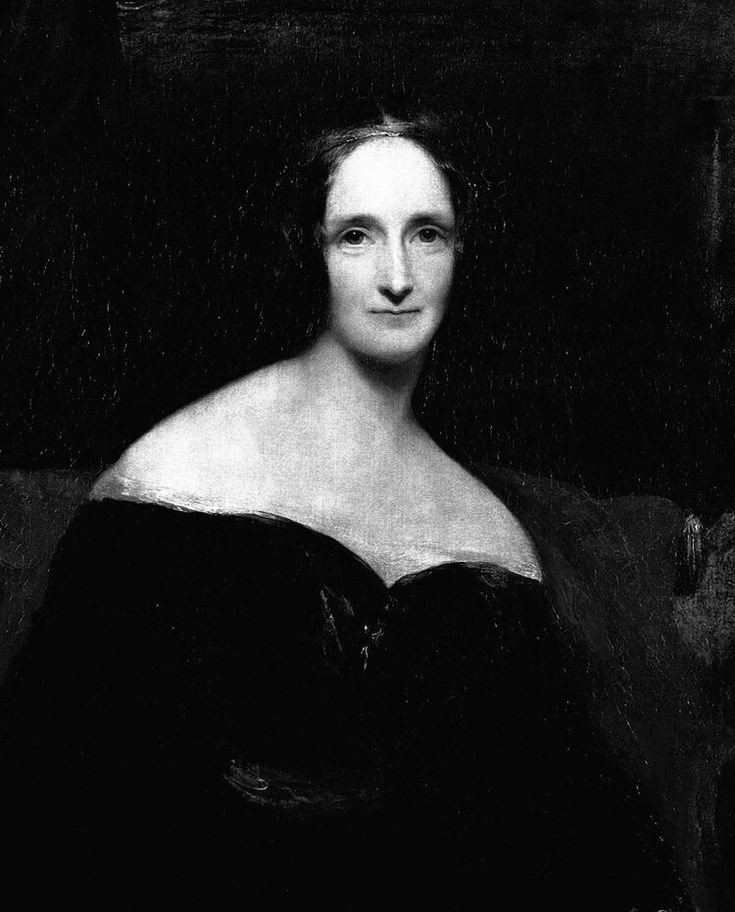
Frankenstein’s dream
The absenteeism of victor’s mother might be a big reason for Victor’s imbalance and lack of motherly traits in him like kindness, warmth, and understanding. It shows how the mere presence of a mother can influence one’s entire life. In my opinion, Victor’s mother’s appearance in his dreams, in the place of his to-be bride can be assumed in two ways, either it was Frankenstein presuming his mother in a sexual aspect, or he was devoid of the parental care that he finds appealing but has never been able to acquire due to her mother’s passing away.
As we look more and closer, it becomes clear that Victor’s yearning for maternal traits and to fill that vacuum in his life is the most likely origin of the creature: this want for nurturing and affection. If his mother would have been alive, she wouldn’t have let Victor carry out the crazy and careless experiment to create the monster.
Victor wants to create life, something that he lost and longs for since the death of his mother. This yearning for Victor to create the creature only adds to the impact Mrs. Frankenstein had on her son, making her a character of so many elements, without being physically there. Since his mother’s passing, Victor has lost and yearned for the ability to make life.
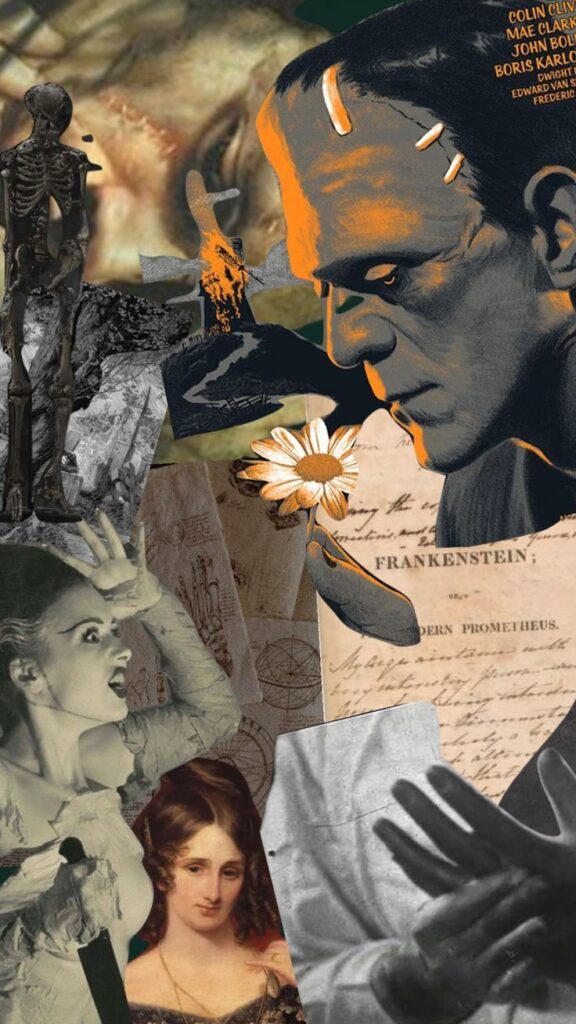
Did ambition play a part in Frankenstein creating the monster?
Another reason for him to create the beast-like creature might be his ambition. Victor Frankenstein believed that he made his monster to benefit humanity, just like Doctor Faustus learned the art of black magic for the betterment of mankind. Although, we all know that it was nothing but his ambition that he wanted to satiate. Both of them wanted to become God. Victor becomes captivated by the concept of bringing inanimate elements to life and begins to investigate ways to accomplish so. Victor believed he was helping humankind by producing a “new human.” Although Victor makes a new human after stitching the different body parts, he gets horrified by the creature by its “ugliness.”

Conclusion
Therefore, it might be safe to say that he was inspired to create the creature because of his mother’s death. Victor, as a young man, without receiving any elderly/motherly love and guidance fed himself up with ambition and arrogance to cheat death and thus, created the so-called “monster.”
In Frankenstein, by Mary Shelley, we also get see about the recurring theme of loneliness and isolation, much like how the current generation faces it. Read more about it in https://nerdheard.in/index.php/2023/01/30/loneliness-the-ultimate-guide-to-become-happier/

